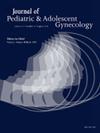24. 儿科住院医师的避孕教育:探索知识、障碍和有助于有效青少年保健的举措
IF 1.8
4区 医学
Q3 OBSTETRICS & GYNECOLOGY
引用次数: 0
摘要
背景:在儿科住院医师培训期间,青少年人口占门诊人数的很大一部分。众所周知,儿科住院医师项目缺乏对妇科的了解,也缺乏针对青少年避孕护理的必要教育。通过这项研究,我们旨在从儿科住院医师的角度评估避孕教育实践,以促进儿科住院医师计划的教育。方法对美国4个儿科住院医师项目的住院医师进行问卷调查。调查避孕教育的经验和态度、处方舒适度、教育差距和未来发展方向。数据匿名收集,分类分析采用百分比和描述性统计,并进行多变量分析,以寻求统计显著性。结果在收到问卷的300多名儿科住院医师中,有42人回复了问卷。只有66%的居民报告在医学院接受过避孕咨询方面的正规教育,尽管大多数居民(59.5%)每月开出多达5次的处方。在教育方面,69%的住院医生报告说,在青少年医学等住院医生轮转期间,他们对避孕的了解最多。对于那些在住院期间接受过避孕教育的人,大约71%的人报告说<;提供10小时的教育。在对处方一种或多种方法表示不适的居民中,42.9%的人认为这是由于对该主题的了解不足。大多数人表示希望有更多的动手操作的实验室,以加强他们的避孕培训。总体而言,73%的受访者希望在住院医师培训期间更多地避孕,趋势表明避孕处方舒适性随着PGY年的增加而增加,这意味着增加的接触可能会加强技能和知识。结论:参与这项研究的许多住院医生将继续成为初级保健提供者,他们将在培训期间获得的知识的支持下,独立开避孕处方。然而,数据表明,居民在避孕方面并没有接受平等的培训。这反过来又影响了咨询和避孕处方在诊所发生的频率。这项研究强调了制定标准化课程的必要性,以确保住院医生获得必要的工具,为青少年患者和其他人提供充分的生殖保健。本文章由计算机程序翻译,如有差异,请以英文原文为准。
24. Contraceptive Education in Pediatric Residency: Exploring the Knowledge, Barriers, and Initiatives that Contribute to Effective Adolescent Healthcare
Background
The adolescent population makes up a significant portion of the outpatient panel seen by pediatric residents during their training. Pediatric residency programs notoriously lack the exposure to gynecology and the education needed to address adolescents in regards to contraception care. With this study, we aim to assess contraceptive education practices from the lens of pediatric residents contributing to the enhancement of education in pediatric residency programs.
Methods
A questionnaire was distributed to residents from four pediatric residency programs across the United States. It was used to survey experiences and attitudes on contraceptive education, prescribing comfortability, educational gaps, and future directions. The data was collected anonymously and analyzed categorically by percentages and descriptive statistics, as well as multivariate analysis in search of statistical significance.
Results
Of the over 300 pediatric residents who received the questionnaire, 42 responded to the survey. Only 66% of residents reported having formal education on contraceptive counseling in medical school, although the majority of residents (59.5%) prescribe it up to 5 times per month. In terms of education, 69% of residents report learning most about contraception in residency on rotations such as Adolescent Medicine. For those who received their contraceptive education during residency, roughly 71% report < 10 hours of education was provided. Of the residents expressing discomfort with prescribing one or more methods, 42.9% related that it was due to inadequate knowledge of the topic. A large majority express the desire to have more hands-on procedural labs to enhance their contraceptive training. Overall, 73% of respondents desired more contraception during their residency training with trends suggesting that contraceptive prescription comfortability increases with PGY year, implying that increased exposure may strengthen skills and knowledge.
Conclusions
Many of the residents involved in this study will go on to become primary care providers who will be expected to prescribe contraception independently, bolstered with knowledge gained during their training. However, the data suggests that residents are not receiving equal training in contraception across the spectrum. This in turn is impacting the frequency in which counseling and prescription of contraception occurs in their clinic. This study reinforces the need for a standardized curriculum set in place to ensure residents are gaining the tools needed to provide adequate reproductive healthcare to their adolescent patients and beyond.
求助全文
通过发布文献求助,成功后即可免费获取论文全文。
去求助
来源期刊
CiteScore
3.90
自引率
11.10%
发文量
251
审稿时长
57 days
期刊介绍:
Journal of Pediatric and Adolescent Gynecology includes all aspects of clinical and basic science research in pediatric and adolescent gynecology. The Journal draws on expertise from a variety of disciplines including pediatrics, obstetrics and gynecology, reproduction and gynecology, reproductive and pediatric endocrinology, genetics, and molecular biology.
The Journal of Pediatric and Adolescent Gynecology features original studies, review articles, book and literature reviews, letters to the editor, and communications in brief. It is an essential resource for the libraries of OB/GYN specialists, as well as pediatricians and primary care physicians.

 求助内容:
求助内容: 应助结果提醒方式:
应助结果提醒方式:


